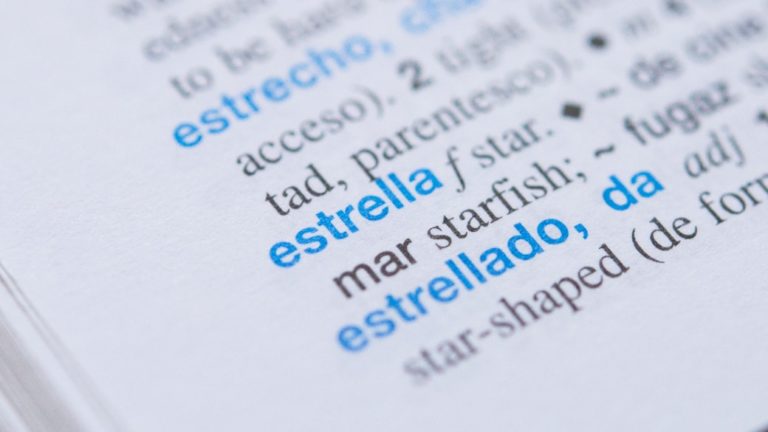September 18th, 2017Last updated: September 22nd, 2022
There is much mystery and misinformation surrounding this seemingly obscure qualification offered by CIE. This short article sets out to explain exactly what Pre-U is and how it works, with a particular focus on its Modern Foreign Languages provision.

Pre-U is a qualification that is roughly equivalent to A-levels and IB qualifications, similarly studied over a two-year period but with some key differences to existing courses. Pre-U courses are typically challenging, have an excellent reputation and prepare students well for the study required of them at university level. Pre-U has been around for almost ten years, and is being taken up increasingly by schools wishing to teach a rigorous and stimulating course, with a highly-reputable qualification to be gained at its end.
How is Pre-U examined?
The Pre-U Modern Languages courses are examined through 4 papers, all sat at the end of Year 13/Upper Sixth. The fact that no examinations are taken until the end of the second year of the course is a huge advantage, as you are able to show off all the language and skills you have learned throughout the duration of the course; you are very likely to be an outstandingly proficient linguist by the time exams come around. Each paper holds equal weighting at 25% of your final grade. For other subjects, like English, there is a coursework (or Personal Investigation) element, but this is not the case for Modern Languages. The content of the papers is similar to other specifications, in that they test your ability to understand and reproduce language extending on the topics studied at GCSE, alongside a paper that tests your knowledge of the culture and literature in the language you have chosen to study.
How is Pre-U marked?
All 4 papers are double-marked by independent examiners. For the written papers, a specialist in that particular paper usually marks the scripts. Unlike A-level courses, however, your Languages teacher will not conduct your speaking examination. The exam board, CIE, sends an external examiner to your school to run the speaking tests; they are marked there and then, and also recorded by the examiner for moderation. Pre-U examinations have very fair grade boundaries, and whilst the papers are challenging, doing well in Modern Languages at Pre-U is very much a tangible prospect.
How is Pre-U graded?
Pre-U does not use letters to grade (i.e. A*, A, B, etc…), but awards a Distinction, Merit or Pass based on performance in the exams. These are broken down further into top, middle and bottom tiers as set out below.
Here is an approximate equivalence of Pre-U grades to A-level grades:
D1 - Higher than an A*
D2 - A*
D3 - High A
M1 - Low A/High B
M2 - B
M3 - High C
P1 - Low C
P2 - D
P3 - E
How do UCAS and universities treat Pre-U?
Each Pre-U grade tends to be worth 5 more UCAS points than their A-level equivalent, and universities have adapted their offers to accommodate Pre-U. For example, if you study French, Spanish and English at Pre-U and have a university offer equivalent to AAB, your offer letter will specifically say D3, D3, M1. Some universities classify M1 as equivalent to a B grade at A-level, though schools will tend to count M1 as equivalent to an A grade in their results data.
Which schools offer Modern Languages at Pre-U?
A number of excellent schools currently offer Languages (and other subjects) at Pre-U, such as Westminster School, St. Paul’s Boys, North London Collegiate School and Winchester College. Some schools have been offering this course since its first round of examinations in 2009, with a steady stream of schools transitioning into Pre-U Languages courses as the qualification gains prominence and builds its reputation. Interestingly, many new A-level specifications appear to be mirroring their Pre-U counterpart, both in content and how they examine specific skills in the subject. As the selection of schools offering Pre-U has been quite small until recently, most questions in Pre-U examinations are set by examiners who teach at this small pool of prominent schools.
Why study Pre-U?
Students are increasingly prepared for courses like Modern Languages at Pre-U, thanks to the skills tested as part of the new GCSE, such as translation. This makes the progression to Pre-U more natural post-GCSE. As mentioned above, taking a Pre-U in French, Spanish, Italian, or another language offered by CIE, is a good choice because it is a linear course, that is to say, you only take exams at the end of the course once you are able to demonstrate all your skills and knowledge as a linguist. The way the papers are marked rewards you for doing this, and doing well in Modern Languages at Pre-U is realistic and attainable. Finally, the structure and content of the course means that if you want to read Languages at university, you will have already started practising the skills needed to flourish as a linguist at undergraduate level and beyond.
You might be interested in



According to the Cambridge International Examinations website of the Cambridge Pre-U announced that all the 'Ivy League' universities in the USA accepted the Cambridge Pre-U for the purposes of university entrance.